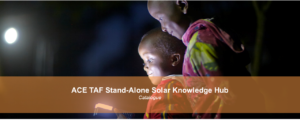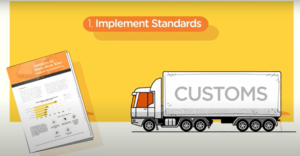Should all products regardless of their quality benefit from the tax exemptions?
Over the years we have seen governments across the continent provide fiscal incentives to scale off-grid solutions and attain energy access goals. These incentives have largely been successful, but questions still linger. Do these incentives promote the growth of the sector? Do end users benefit from the reduced tax? Do they promote affordability? Should all products regardless of their quality benefit from the tax exemptions? Should the incentives be time bound? Can the industry make a case to governments on the benefits of foregoing the anticipated revenue?
In every single country covered by the Africa Clean Energy Technical Assistance Facility (ACE-TAF), the private sector has brought up the issue of fiscal incentives. In countries where they do not exist there is a push for implementation of these incentives, in countries where the incentives exist these exemptions are not always effectively or consistently implemented.
Solar products present the most cost-effective way of providing electricity to unserved households in sparsely populated rural areas. However, there is limited evidence on the benefits of granting exemptions, and the financial cost and capacity development needed to consistently implement such incentives. Many governments have not assessed the impact of foregone taxes on stand-alone solar uptake and the full range of socioeconomic benefits to the different stakeholders – government, households, and the environment. Even where exemptions are granted, inconsistent application at the border remains a major challenge. Codes do not always clearly define the components of the stand-alone solar system that are exempt.
In the absence of an evidence base to support tax exemptions there is a risk of reversing existing policies as countries face a challenging public finance context because of the COVID-19 pandemic. Countries that previously had exemptions are now reviewing these policies, as they need to balance priorities given the economic downturn, which is both reducing tax receipts and increasing the need for public spending. These policy changes will potentially have an adverse effect on the ability to achieve energy access targets.
It is against the foregoing background that ACE TAF conducted a study on responsible VAT and duties for the SAS sector. The study produced three outputs; The report, policy brief and MS Excel tool to assess the impact of taxes on SAS and socioeconomic development. The report highlights application of the tool in three focus countries: Malawi, Rwanda, and Sierra Leone. Additionally, deep dive studies were conducted in Rwanda, Sierra Leone, Zambia and Kenya. In Zambia, the study took the form of an economic impact assessment. All the reports are available on the SAS Knowledge Hub.
The general finding of the responsible taxation study was that tax exemptions remain an important tool to spur the growth of the sector and increase energy access. However, these require to be applied together with other mechanisms that address affordability such as demand side subsidies in order to reach the most vulnerable households who are greatly in need of these stand-alone solar products.
By Pauline Githugu, ACE TAF Team Leader










